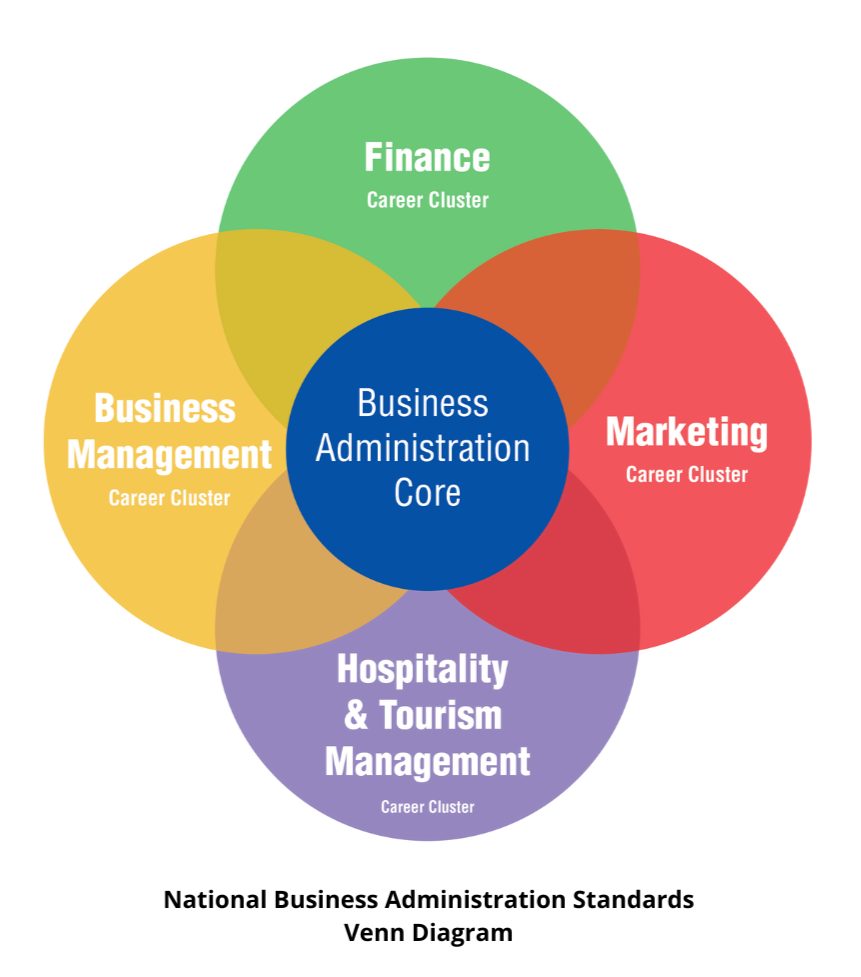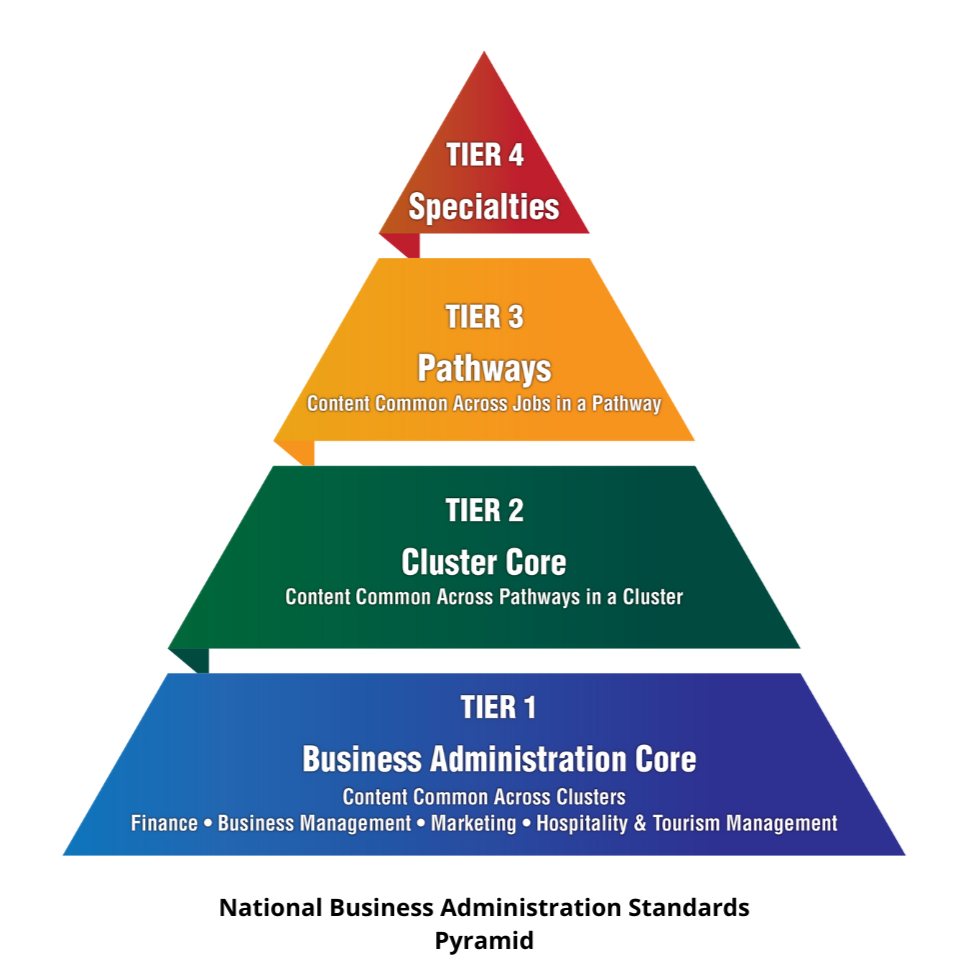MBA Research National Business Administration Standards are the starting point for your students’ academic and career success.
Standards are broadly-based knowledge and skill statements that identify what students should know and be able to do as a result of instruction.
We focus our research, curriculum and instructional materials design, and assessment activities on four business-related clusters:
• Business Management
• Finance
• Marketing
• Hospitality and Tourism Management
Our research efforts incorporate both primary and secondary research based on business sources rather than educational sources. Business-based research provides a mechanism for the identification of current, actual skills and knowledge needed by employees in the workplace.
Because of our engagement and research with business professionals and organizations throughout the country, these standards are unique in education.
Our continuous research process utilizes focus groups, interviews, business association standards, surveys, and certification criteria. This research and development process is what allows us to deliver standards that provide current information on the skill sets being used in the workforce today.
Learn MoreThrough our research, we have learned the importance of equipping students with the skills and knowledge needed for any career in business. The standards within the Business Administration Core apply to all career clusters in business. Our standards are organized on the premise of starting broad and narrowing in specificity as the student progresses in their program of study. This ensures that students enter the workforce, college, or a career with an understanding of these core concepts.
Entrepreneurship research is integrated across all career clusters in our standards. Learn more about our approach to entrepreneurship within our standards below.
Access Now
Our research efforts resulted in the identification of similar, overlapping skills and knowledge across the four clusters (Business Management, Finance, Marketing, and Hospitality & Tourism Management).
This common know-how is the Business Administration Core, composed of the following topics:

Each of the four clusters contains content that is common to its pathways and is known as the Cluster Core. Each of the clusters is composed of four to five Pathways, and each Pathway contains content that is common to the jobs in it. Finally, there is content that is specific to a job or product, known as Specialties.
Instruction should be designed to move from general to specific, setting up the high school curriculum around the content in the Business Administration Core and the Cluster Core.
As students progress in their education, they should acquire content increasingly more specific to their area of interest in business.
The content within each of the four clusters is organized into Standards, Performance Elements, Performance Indicators, and Objectives.
Standards identify what students should know and be able to do as a result of instruction in any of the business-related clusters. These statements encapsulate the overarching intent/purpose of a work function.
The Economics Standard identified in the Business Administration Core, for example, is: “Understands the economic principles and concepts fundamental to business operations.” Each Standard/Instructional Area represents a particular topic—not a course.
Each Standard is composed of multiple Performance Elements. These statements are broad-based work or cognitive performances that aid in defining the Standards.
A Performance Element from the Economics Instructional Area, for instance, is “Understand the nature of business to show its contributions to society.”
Performance Elements are defined through Performance Indicators that are specific work-based actions—either knowledge or skills. They specify what an individual worker must know or be able to do to achieve the Performance Elements. These learning outcomes are measurable (i.e., can be assessed).
For example, one of the eight Performance Indicators for the Economics Performance Element “Understand the nature of business to show its contributions to society” is: “EC:070 Explain the role of business in society.”
Each of the Performance Indicators is further defined through a series of Objectives. This organizational component specifies the scope of each Performance Indicator. Their use tells teachers what content to include or exclude from their instruction.
For example, the Performance Indicator “Describe the concepts of economics and economic activities” is defined through Objectives as follows:
a. Define the following terms: economics, scarcity, economizing, opportunity cost, trade-offs, consumption, consumer, production, producer, exchange, and distribution.
b. Explain why wants are considered unlimited.
c. Discuss why scarcity exists.
d. Describe the three economic questions that all societies must answer.
e. Explain the importance of decision making in economics.
f. Describe four economic activities.
g. Discuss three factors that affect the value of money payments in a market economy.
MBA Research’s philosophy is that curriculum should be organized from simple to complex, thereby enabling students to acquire foundational understanding and skill before they acquire more advanced skills.
Each Performance Indicator is assigned to a curriculum-planning level based on the job level at which it is first needed within businesses. These curriculum-planning levels progress from simple to complex:
Looking for a high-level overview? Standards Executive Summary (1 pg)
Interested in a deeper dive into the research? Standards Introduction (5 pg)
Looking for an extensive report on our foundations? Standards Full Guide (21 pg)
Want to learn our terminology? Standards Glossary (1 pg)
Learn more about the National Business Administration Standards by getting in touch with our team today.